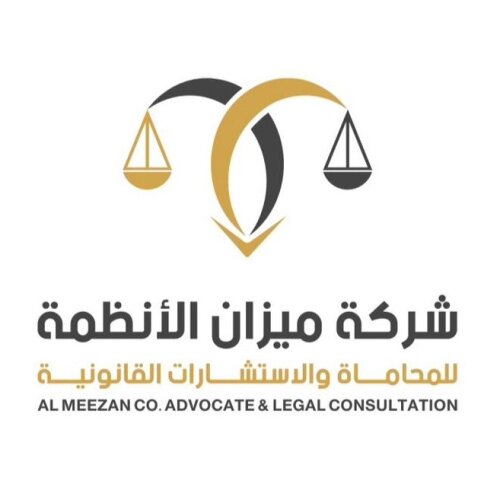
Best Landlord & Tenant Lawyers in Saudi Arabia
Share your needs with us, get contacted by law firms.
Free. Takes 2 min.
Free Guide to Hiring a Real Estate Lawyer
Or refine your search by selecting a city:
List of the best lawyers in Saudi Arabia

About Landlord & Tenant Law in Saudi Arabia
In Saudi Arabia, landlord and tenant law is governed by a combination of local customs, Sharia principles, and specific regulations aimed at navigating the relationship between property owners and tenants. The primary legal framework is based on the Landlord and Tenant Law, which outlines the rights and responsibilities of both parties within rental agreements. The law strives to maintain fairness and equity, ensuring that the interests of both landlords and tenants are safeguarded. Understanding the intricacies of these laws is crucial for both parties to prevent and resolve disputes effectively.
Why You May Need a Lawyer
Engaging a lawyer proficient in landlord and tenant laws may become essential in various circumstances, including:
- Drafting and Reviewing Lease Agreements: Lawyers can aid in creating or reviewing lease agreements to ensure they comply with local laws and protect the client's interests.
- Resolving Disputes: Disagreements over lease terms, maintenance responsibilities, or security deposits often require legal intervention to settle amicably.
- Eviction Proceedings: Lawyers can represent landlords in legally complex eviction processes or assist tenants in defending against unjust evictions.
- Rental Property Management: Legal guidance can help in managing rental properties within the legal framework, ensuring compliance with all relevant regulations.
- Negotiations and Mediation: Legal professionals can facilitate negotiations or mediation between landlords and tenants to avoid litigation.
Local Laws Overview
Key aspects of landlord and tenant laws in Saudi Arabia include:
- Tenancy Contract Requirements: A tenancy contract, enforceable by law, must be in place, outlining critical terms such as the rental amount, duration, and any specific conditions agreed upon.
- Security Deposits: Regulations surrounding security deposits protect both tenants and landlords. Typically, the deposit must be held until the end of the lease term and returned after deducting legitimate costs.
- Eviction Rules: Landlords must follow specific procedures to evict a tenant, generally initiated through a legal process that respects tenant rights.
- Maintenance and Repairs: The landlord is usually responsible for significant repairs, while the tenant must maintain minor maintenance to keep the property in good condition.
- Regulation of Rent Increases: The law may restrict unfair rent increases to prevent undue burden on tenants.
Frequently Asked Questions
How is a tenancy agreement formed in Saudi Arabia?
A tenancy agreement is typically formed in writing, detailing all essential terms agreed upon by the landlord and tenant. It is a crucial legal document that must be clear and precise.
Can a landlord increase rent during the leasing period?
Generally, rent cannot be increased during the leasing period unless explicitly stated in the tenancy agreement and agreed upon by both parties in writing.
What are the common reasons for eviction?
Evictions can occur due to reasons such as non-payment of rent, breach of lease terms, or other violations as stipulated by the tenancy agreement.
What should a tenant do if the landlord refuses to carry out necessary repairs?
Tenants are advised to formally notify the landlord of the required repairs. If the landlord fails to act, tenants can seek legal advice to enforce their rights.
What happens to the security deposit at the end of the lease?
The security deposit should be returned to the tenant, minus any legitimate deductions for damages or outstanding rent, after the lease ends.
Can a tenant sublease their rented unit?
Subleasing requires permission from the landlord, typically discussed and arranged as part of the tenancy agreement.
What is the legal notice period for terminating a lease?
The notice period for terminating a lease is usually stipulated within the tenancy contract. Both parties must adhere to this notice period to terminate the agreement legally.
Are there any government agencies that oversee rental disputes?
Yes, the Ministry of Municipal and Rural Affairs often oversees and mediates rental disputes through designated committees or entities.
How are disputes typically resolved?
Disputes can often be resolved through negotiation, mediation, or formal legal proceedings where necessary, often involving the court systems or special committees.
What types of properties are covered under the Landlord and Tenant Law?
The law generally covers all residential and commercial properties rented for habitation or business use. However, specific rules may apply based on the property type or lease purpose.
Additional Resources
Individuals seeking further information or legal assistance can contact the following resources:
- Ministry of Municipal and Rural Affairs: Oversees housing policies and regulations.
- Saudi Center for Commercial Arbitration: Offers mediation and dispute resolution services.
- Local Legal Aid Clinics: Provide no-cost or low-cost legal advice for eligible individuals.
Next Steps
If you require legal assistance in landlord and tenant matters, consider the following steps:
- Consult a Lawyer: Reach out to a qualified lawyer specializing in real estate or landlord-tenant law to discuss your situation.
- Gather Documentation: Collect all relevant documents, such as tenancy agreements, communication records, and receipts, to provide a comprehensive overview to your legal advisor.
- Explore Mediation Services: If feasible, consider utilizing mediation services for a potentially quicker and more amicable resolution.
- Consider Your Options: Your lawyer can help outline your options, including potential legal actions or settlements.
Understanding your rights and responsibilities is key to navigating landlord and tenant issues effectively. Legal professionals can provide invaluable guidance to help you achieve a satisfactory outcome.
Lawzana helps you find the best lawyers and law firms in Saudi Arabia through a curated and pre-screened list of qualified legal professionals. Our platform offers rankings and detailed profiles of attorneys and law firms, allowing you to compare based on practice areas, including Landlord & Tenant, experience, and client feedback.
Each profile includes a description of the firm's areas of practice, client reviews, team members and partners, year of establishment, spoken languages, office locations, contact information, social media presence, and any published articles or resources. Most firms on our platform speak English and are experienced in both local and international legal matters.
Get a quote from top-rated law firms in Saudi Arabia — quickly, securely, and without unnecessary hassle.
Disclaimer:
The information provided on this page is for general informational purposes only and does not constitute legal advice. While we strive to ensure the accuracy and relevance of the content, legal information may change over time, and interpretations of the law can vary. You should always consult with a qualified legal professional for advice specific to your situation.
We disclaim all liability for actions taken or not taken based on the content of this page. If you believe any information is incorrect or outdated, please contact us, and we will review and update it where appropriate.
Browse landlord & tenant law firms by city in Saudi Arabia
Refine your search by selecting a city.
















